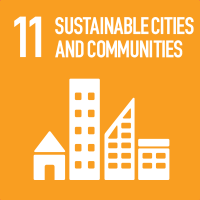Studying at the University of Verona
Here you can find information on the organisational aspects of the Programme, lecture timetables, learning activities and useful contact details for your time at the University, from enrolment to graduation.
Study Plan
This information is intended exclusively for students already enrolled in this course.If you are a new student interested in enrolling, you can find information about the course of study on the course page:
Laurea magistrale in Lingue per la comunicazione turistica e commerciale - Enrollment from 2025/2026The Study Plan includes all modules, teaching and learning activities that each student will need to undertake during their time at the University.
Please select your Study Plan based on your enrollment year.
1° Year
| Modules | Credits | TAF | SSD |
|---|
1st foreign language2nd foreign languageStrategic management applied to international markets
Financial Statement Analysis
History of international trading
2° Year It will be activated in the A.Y. 2025/2026
| Modules | Credits | TAF | SSD |
|---|
1st or 2nd foreign language| Modules | Credits | TAF | SSD |
|---|
1st foreign language2nd foreign languageStrategic management applied to international markets
Financial Statement Analysis
History of international trading
| Modules | Credits | TAF | SSD |
|---|
1st or 2nd foreign language| Modules | Credits | TAF | SSD |
|---|
Legend | Type of training activity (TTA)
TAF (Type of Educational Activity) All courses and activities are classified into different types of educational activities, indicated by a letter.
Strategic management of tourism and cultural business (2024/2025)
Teaching code
4S02580
Teacher
Credits
9
Language
Italian
Scientific Disciplinary Sector (SSD)
SECS-P/08 - MANAGEMENT
Period
I semestre (Area Lingue e letterature straniere) dal Sep 23, 2024 al Dec 21, 2024.
Courses Single
Authorized
Learning objectives
The course aims to provide a series of interpretative and practical tools for the management of cultural organizations (museums, theaters, libraries, festivals) and hotel businesses, with particular reference to the situation of Italy in the global tourism market. At the end of the course, the students will be able to identify the main market trends in cultural motivated tourism, as well as the institutional variables and the managerial guidelines suited to cultural organizations and hospitality businesses.
Prerequisites and basic notions
Bachelor's Degree
Program
Strategic management of tourism and cultural companies: 4 keywords, 4 initial focuses:
Culture: culture in the Italian constitution, state protection and promotion entities, cultural heritage and landscape, the Codice dei Beni Culturali, financial sources: Legge di Bilancio 2024 and PNRR - Culture 4.0-
The 2023 "Io sono cultura" report: sector numbers and trends, related industries and cultural tourism; the categories of the cultural and creative production system.
Tourism: international scenario and numbers and in our country; cultural tourism, not just heritage; the different tourisms; destination management impact on the territory; overtourism and sustainability: impacts and solutions
Tourism: evolutionary directions; does supply create the market? The sentiment Index; Strategic Tourism Plan; PNRR : the areas of intervention.
Strategic planning: elements and methodologies - overview;
Business management: the fundamental processes; the fundamental elements of the income statement and the cash flow statement.
The specificities of the cultural sector and its evolutions; Cultural businesses and creative businesses; state intervention; Law 206 December 2023; distribution of cultural product and technology; measurement of economic, social and environmental impact; accessibility
The specificities of the cultural sector and its evolutions; trends in user behavior; the law of unbalanced growth and managerial management; volunteering and the third sector
Institutes and places of culture: ART 101 of the Cultural Heritage Code; museums and archaeological parks: the numbers of the sector; the Italian museum system, organization, trends, museum functions and fundamental management elements.
Performing arts: distinctive elements, data in Italy, the production process and the subjects involved, the representation and ancillary services, the programm
Opera Theaters and Foundations: regulatory framework; the FUS (Fondo Unico per lo Spettacolo).
Libraries and historical archives: roles and targets
Financing of the cultural sector: the sources (direct contribution, Art Bonus, fundraising, ....)
Audience development and digital communication
UNESCO: world heritage sites, human heritage
The European Capitals of Culture
Strategic plan of a cultural enterprise: MUSE of Trento (2024-2027) - case history
State property federalism, environmental and cultural redevelopment programmes; Urban Regeneration. Case history: THE CERTOSA ISLAND IN VENICE
Hospitality: the sector, the numbers and evolutionary trends
Hospitality marketing: The same target as the cultural sector, similar objectives, a different mission and profitability objectives;
The fundamental management elements of a hospitality company and the performance and benchmarking indicators
The challenges of sustainability: Lario Hotels Sustainability Report - case history
Bibliography
Didactic methods
1) Interactive lectures
2) Flipped classroom: prior reading/study of specific topics to discuss, in-deep analyze in class, interview
3) Lectures on complex or general topics (law scenario, market trends, financing strategies)
4) Case histories on specific topics
5) Learning by doing : researching, on site visits, reports, benchmarking
6) In addition to the reference textbooks, the materials used during the lessons (slides, links, documents) will be provided on the portal.
Learning assessment procedures
Oral, during the official exams
Activities with grade during the course
For non-attending students, the activities during the course will be replaced by work to be presented during the exam
The grade is expressed in thirtieths and takes into account the evaluation obtained in the answers to the various questions asked during the oral exam and the evaluation of the various activities carried out during the course or, for non-attending students, presented at the exam.
Evaluation criteria
-level of knowledge
-ability to apply knowledge
- ability to critically analyze real cases and data
-property of language.
Exam language
Italien




